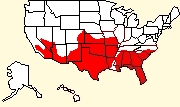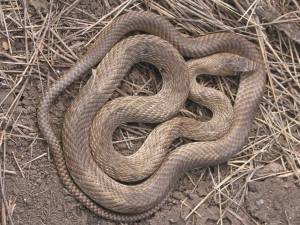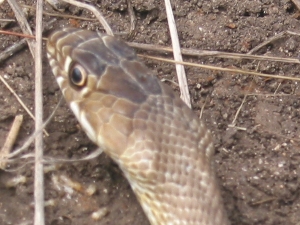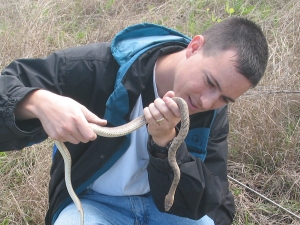|
Western Coachwhip
|
- Order: Squamata (scaled reptiles)
- Suborder: Serpentes (snakes)
- Family: Colubridae ("typical" snakes)
- Subfamily: Colubrinae ("typical"
snakes)
- Genus: Masticophis (whip snakes)
|
|
Scientific Name: Masticophis
flagellum testaceus (Say, 1823) |
| Habitat: A variety of
open, relatively dry areas. |
Mastix="whip," ophis="snake,"
flagellum="whip," testa="brick,"
aceus="having the color of"
|
| Length: To almost 9
feet long. |
|
| Food: Large insects,
rodents, lizards, and other snakes. |
 |
|
This snake was found by ErikNM
and me on 22 March 2003 in a vacant lot in San Antonio. It
was sheltered under a discarded piece of tin. It was the
last piece of cover we checked that morning, having been
"skunked" in our quest for this species until this one
turned up. |
 |
| Here's a close-up of the
head. Coachwhips are diurnal, fast-moving snakes. They
don't have venom, and they don't constrict their prey, instead
relying on overpowering other animals with speed and a powerful
bite. |
 |
| This powerful bite is what I
hoped to avoid as I examined the snake! I'm wearing my
coat--the temperature that morning was in the 50s
Fahrenheit. That probably helped with my desire to avoid
being bitten, since it kept the snake from being quite so
"frisky." |
 |
|
|
|
|